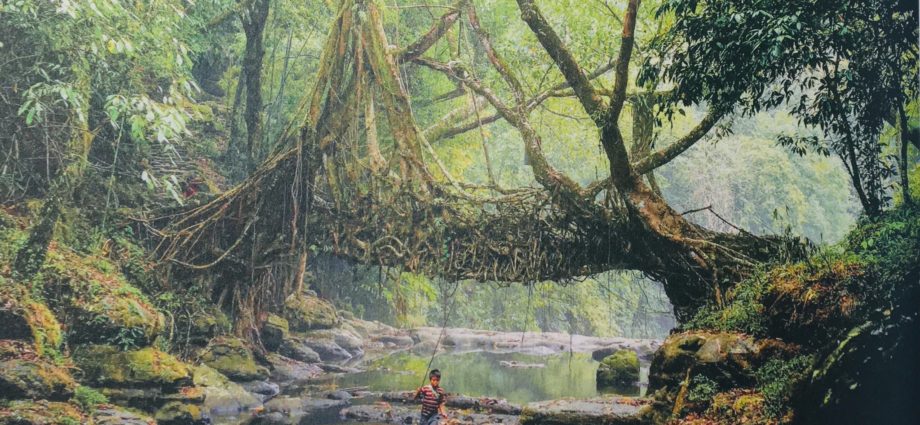Renowned Architect and Author Julia Watson praised the incredible root bridges of Meghalaya in a recent episode of TED Talks titled ‘How to Build a Resilient Future Using Ancient Wisdom‘.
Julia Watson has authored the book ‘Lo-TEK Design by Radical Indigenism‘. She combined the terms ‘low-Tech’ and Traditional Environmental Knowledge (TEK); and coined the term ‘Lo-TEK’.
Watson believes that the indigenous communities are pioneers of technologies that provide solutions to climate change. In the book which was published in 2019, she highlighted that even though the tribal communities are seen as primitive by many, they are highly advanced when it comes to creating systems in symbiosis with the natural world.
The book includes a series of case studies and one of those is Jingkieng Dieng Jri Living Root Bridges made by the Khasi tribe in Meghalaya.
Meghalaya Chief Minister Conrad Sangma took to twitter to share a clip of Julia Watson where she talks about the roots bridges of the state, how these are created and how long do they last.
“…Khasi people live in a forest that receives more rainfall than anywhere else on earth. And during the monsoon season, travel between villages is cut off by these floods, which transform this entire landscape from a forested canopy into isolated islands. This hill tribe has evolved living root bridges that are created by guiding and growing tree roots that you can barely wrap your arms around through a carefully woven scaffolding. Multiple generations of the Khasi men and the women and the children, they’ll take care of these roots as they grow to the other side of that bank, where they’re then planted to make a structure that will get stronger with age. This 1,500-year-old tradition of growing living root bridges has produced 75 of these incredible structures. And while they take 50 years to grow, in this landscape they actually last for centuries”, says Watson in the video.
(Feature image source: Alex Morss)

